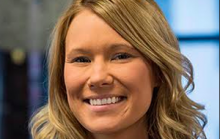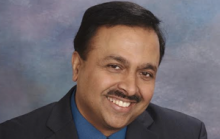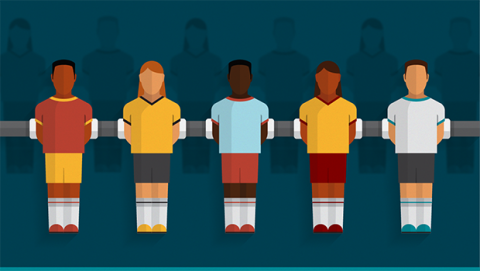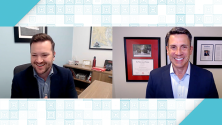As IT tackles challenging mandates in the digital era – from driving competitive advantage for the business to improving the customer journey – CIOs know that hiring the right IT talent directly correlates to success. That's why IT leaders are looking beyond the technical skills that new hires bring, and prioritizing soft skills and qualities such as curiosity during the interview process.
We asked IT and business leaders to share one characteristic they hold above the rest when it comes to hiring IT talent.
1. Personality
 Paul Brady, CIO, Arbella Insurance Group: "It sounds cliché, but I look for good people. By the time candidates get to my office, I already know they have the level of competency needed for the job. So what I am primarily looking for is personality and traits that fit in with our culture. Can they balance working hard with having fun in the workplace? Can they build personal-professional relationships? These are the things I’m looking for."
Paul Brady, CIO, Arbella Insurance Group: "It sounds cliché, but I look for good people. By the time candidates get to my office, I already know they have the level of competency needed for the job. So what I am primarily looking for is personality and traits that fit in with our culture. Can they balance working hard with having fun in the workplace? Can they build personal-professional relationships? These are the things I’m looking for."
2. Self-awareness

Stacey Browning, President, Paycor: "Self-awareness. I ask all candidates this question during interviews: 'What’s your personal brand?' or more subtly, 'What are you known for?' It’s important that individuals understand their own pros and cons and how they are perceived by others. The best employees know how to surround themselves with others who overcome their weaker areas. I’ll ask, 'Who do you like to have as your right hand?' Employees who are self-aware are most impressive to me. They’re the ones I’ll hire – and later, promote."
3. Team player

Jay Dorenkamp, VP of engineering, Jamf: "When I interview, I look for the three attributes described by Patrick Lencioni in his book 'The Ideal Team Player' as key: hungry, humble, and smart. Of these, I personally believe humility is the most important because a humble person gives credit to others, listens to others ideas, and is more open to letting the best idea win. I find that it’s easy to accurately assess a potential new hire's technical skills and domain knowledge through an interview — but typically, performance concerns with employees are not the result of lacking these technical skills. Instead, it's due to a lack of soft skills, which impacts their ability to work effectively in a team. Because of this, I specifically organize my interviews to uncover evidence that a candidate has the key attributes of a team player.”
4. Care

Kristen Byrne, director of recruiting, Clarity Consulting: "The most important trait I look for in new-hire candidates is 'care,' in three different areas. Ideal candidates need to care about learning new skills, trying new things, and challenging themselves to grow professionally. They would need to care about their co-workers in order to thrive in a collaborative team environment. Most important, they need to care about the quality of their work to ensure each and every client gets the very best."
5. Adaptability

Eric Hastings, EVP of technology, Lotame: "At Lotame, we look for adaptability. Assuming a candidate has the basic skills for the role, their ability to apply those skills in new and unforeseen ways will drive their success. In our interviews, we look for candidates to share how they've applied themselves to different types of problems, and how well they adapted as necessary to get the job done. I hold integrity above all else. Integrity goes hand in hand with good ethics, good performance, and caring about the company, which all lead to good business."
6. Communication skills

Carla Emmons, VP of technology, Intermarkets, Inc.: "We look for creative problem-solving in candidates. I find it illuminating to ask candidates how they’d approach a problem, a problem which I’ve chosen deliberately to be outside their background experience, just to see how they talk through their approach, analysis, and potential solutions. Our challenges are often out of the norm, and outside requirements often restrict our approaches, so as a company, Intermarkets looks for people who are tenacious and can think around a problem, look at the actual goal and find multiple paths to get there. We encourage crazy ideas because, even if the idea isn’t the right solution, it often leads us to change our perspectives and find a better way to do something."
7. Altruism

Chris Cheney, CTO, MPP Global: "We look for highly-motivated candidates when making a new hire. Their success will be dependent upon how well they are able to inspire others on their never ending quest to make something better. There is always room for improvement in an operating workplace, so we want candidates who have a fundamental and relentless desire to continually improve. Assuming a candidate has the basic skills and focus for the role, a positive attitude, intelligence, and resilience are the traits we look for in order of priority. Altruism is another high-priority characteristic we treasure in our company. A candidate should be prepared to put collective objectives ahead of their own personal needs to thrive at MPP Global."
8. Curiosity

Subbu Rama, co-founder and CEO, Bitfusion: “I always look for curiosity in candidates — specifically, I look for people who are very curious about whatever they do, why they do it, and how they do it. Curiosity is the key to any innovation. Constantly asking intellectually challenging questions and pushing the limits all the time is extremely important for any organization in today's age.”
9. Problem-solver

Art Landro, CEO, Sencha: "Any business, especially the software business, is a team sport that operates across a wide variety of challenging environments. The most important trait I look for in a potential candidate who will need to significantly contribute to the organization and thrive as an employee is a problem-solving team player. It is amazing how quickly organizational stovepipes can appear, even in the smallest organizations; or how easy it is to think a problem is someone else’s to solve, even if it impacts you directly. Team players look across all aspects of the organization to gain a deeper understanding of the end-to-end operation and build positive relationships that enhance communications. This leads directly to either preventing problems outright or quickly identifying and solving problems in a pro-active manner – preventing small problems from becoming major issues. We don’t want 'problem announcers' – we want 'problem solvers.'"
10. Comfort with ambiguity

Jen Skrabak, PMO executive: "One thing I look for is someone who is comfortable with ambiguity. A lot of times, people want things that are very clearly defined, and they see the world black and white – especially those who are more technically minded. But in IT, there are gray areas. There’s a tremendous amount of ambiguity, especially if you’re working on something transformational. So when I look for new hires, I look for people who have the ability to work well with ambiguity. Rather than feeling frustrated or stifled by it, they see it as a challenge. They are energized by ambiguity and the opportunity to bring clarity to a situation where it doesn’t currently exist."
11. Balanced ego

Muthu Arumugham, corporate vice president, technology, Ebix: "I look for someone with a balanced ego: Someone who takes the job seriously but doesn’t take themselves that seriously. I also want someone to feel comfortable standing up in a group to say, 'This is what I think,' regardless of where you are in the pecking order. Just because someone has a more senior title doesn’t mean their ideas are better than yours."










